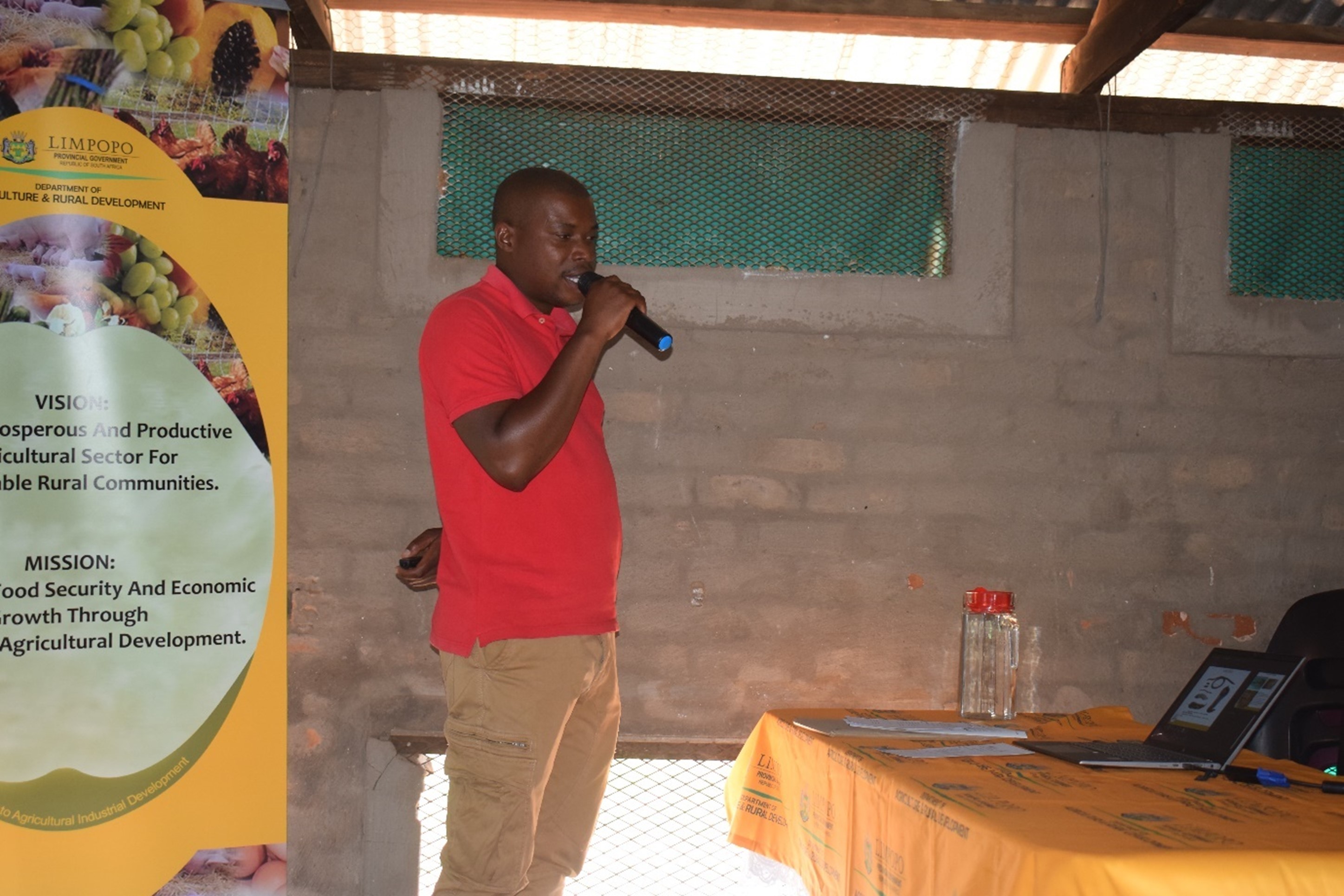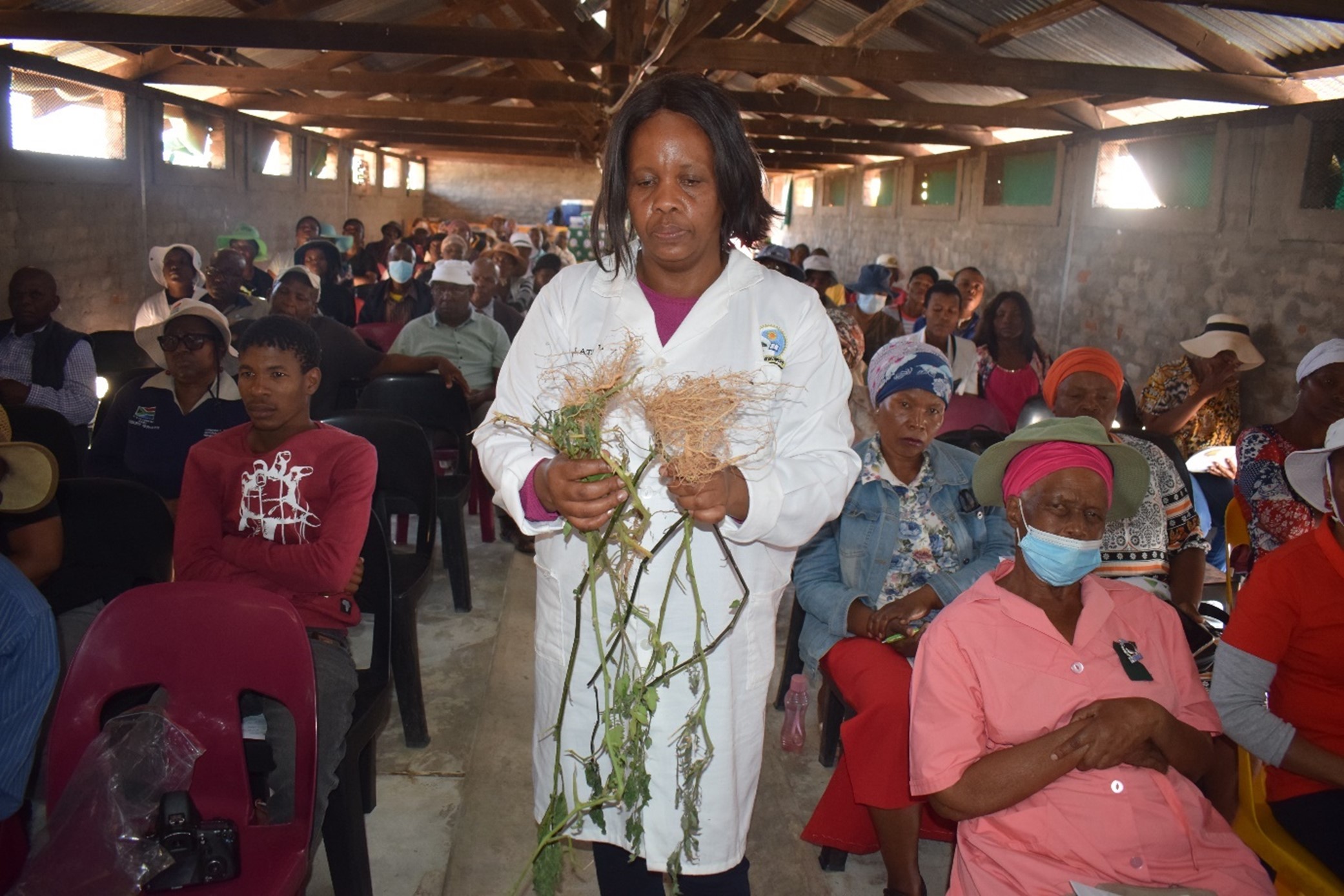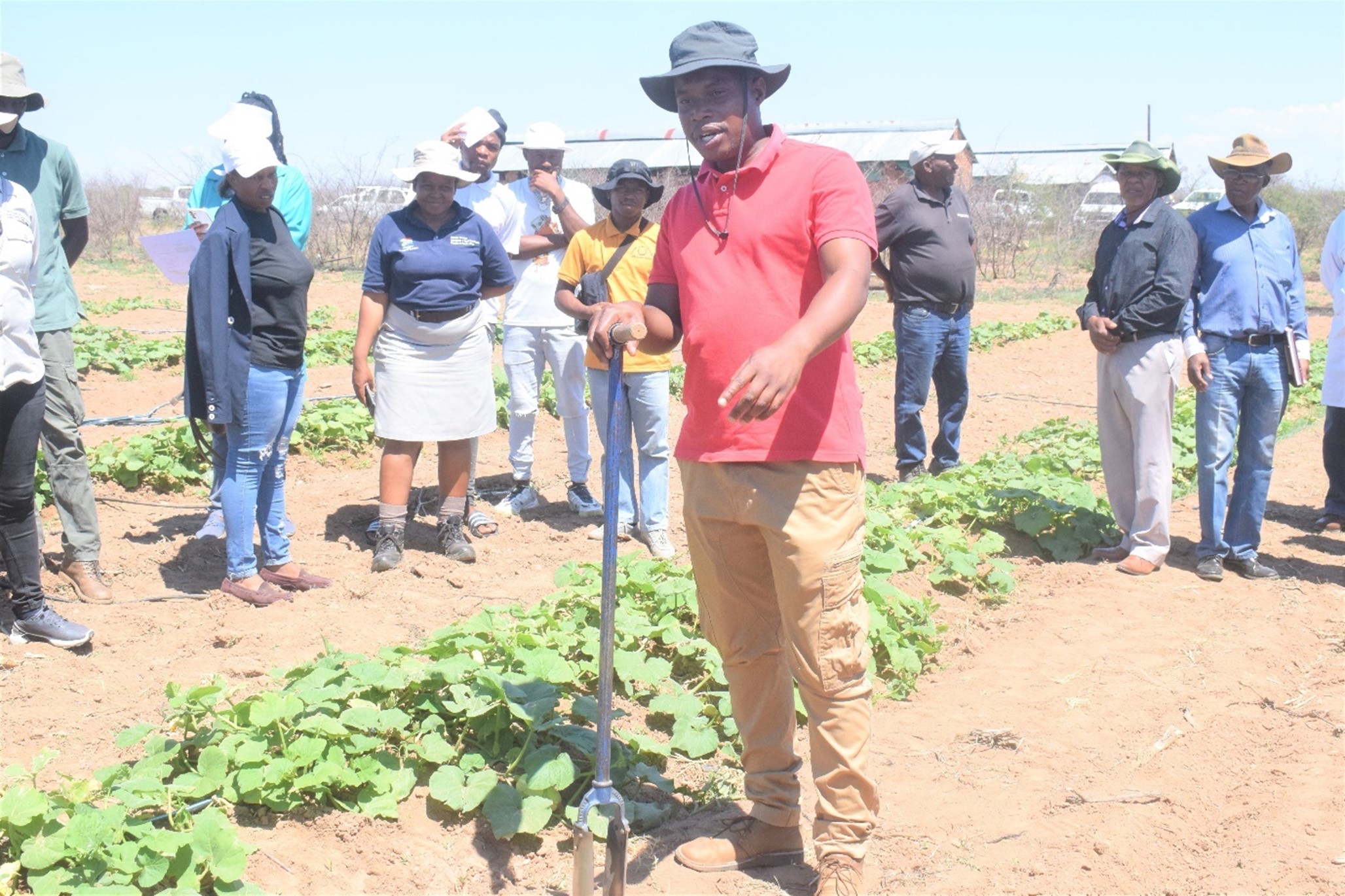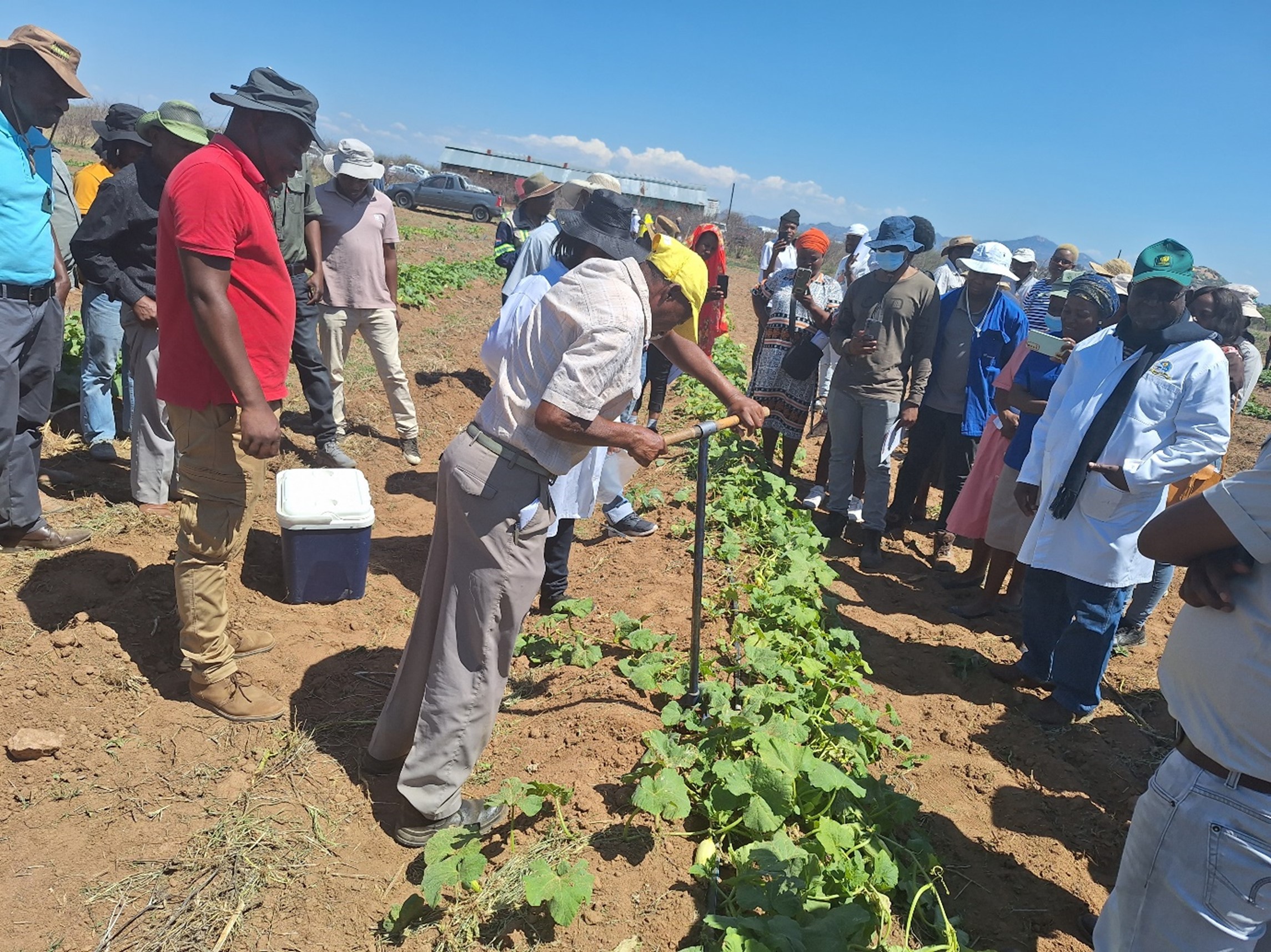By Matsobane Manaka and Maite Theka

The malpractice of land management coupled by changes in soil conditions often lead to the breeding of pests. The species contribute negatively resulting with severe damage to agricultural crops including the decrease in plant production.
The Limpopo Department of Agriculture and Rural Development (LDARD) in partnership with University of Limpopo (UL) held a Pest Management session with the aim to grow healthy crops.
The awareness was held at Mahumo’a Juno project, Juno village, Ga-Matlala, Capricorn District on 09 November 2023.
The session kicked-off with the theory – describing and explaining the various types of pests’, to the extent of the damage they can cause, and the session was later wrapped up by the demonstration of soil sampling in the field.

LLeka Malatji from University of Limpopo shows the indigenous plant during agro processing session.
Professor Phathu Mashela from UL indicated in his presentation that the management of pests need to be conducted in a sustainable manner with no damage to the environment, agroecosystem, and no risk to human health.
The most effective way of controlling the pests, although each has advantages and disadvantages, including physical, biological, and chemical.
Kgashane Malatji from UL elaborated that the pest management plan is fundamental to prevent pests from becoming a threat.
Speaking during the demonstration in the field, Malatji detailed the processes of soil sampling until the soil was taken to the laboratory. This practice was to determine the existence of pests such as nematodes.
He concluded that the pest-resistant varieties can also help with the fight against nematodes.
University of Limpopo committed to assist farmers, through extension services, especially those with 10 hectares and above in some areas of research in a bid to secure food security.
Their research will include the aspects of agroprocessing.

Kgashane Malatji from University of Limpopo demonstrates as to how to take soil sample.

A farmer, Madimetja Ngoasheng Mososwane, was given an opportunity to take soil sample.


